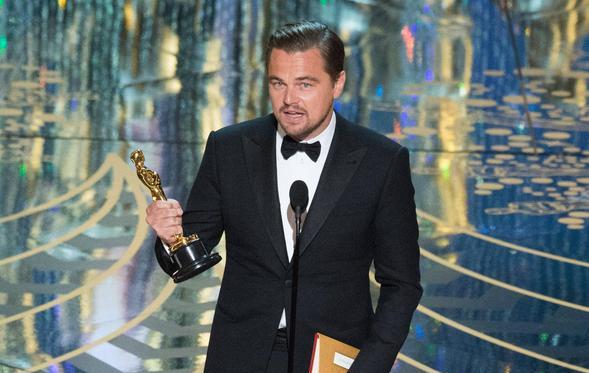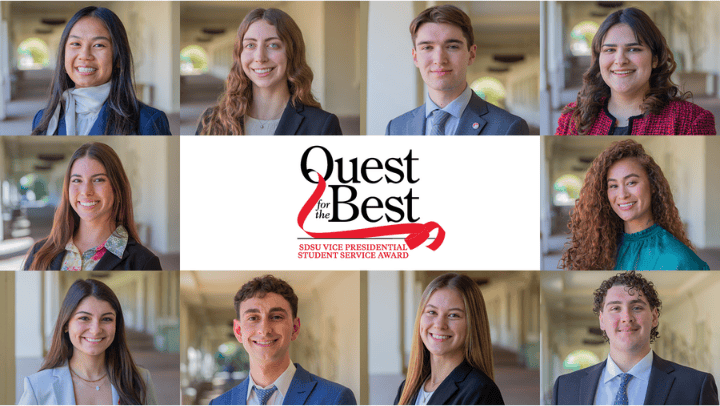And the Oscar Goes to... Climate Change
A new study led by SDSU researchers finds that Leonardo DiCaprios Academy Awards acceptance speech corresponded with record levels of public engagement with climate change.

Featured alongside the glamour and star power of the 88th Academy Awards was a potentially planet-saving performance: Leonardo DiCaprio used his Best Actor acceptance speech to advocate for action on climate change before 34.5 million live viewers.
A study by researchers in the San Diego State University Graduate School of Public Health, recently published in the journal PLOS ONE, finds that tweets and Google searches about climate change set record highs after DiCaprio’s speech, even though coverage in traditional news media did not increase.
“The clear and surprise Oscar winner was climate change,” said SDSU adjunct assistant professor John W. Ayers, who led the study along with doctoral candidate Eric C. Leas. “These results suggest that celebrities who champion social causes really can make a difference.”
The team delved into public archives for news media trends, Twitter postings, and Google search trends to investigate global engagement with climate change since Jan. 1, 2011.
Focusing on Feb. 28, 2016—the day of DiCaprio’s speech—the team monitored all news reports, tweets and Google searches mentioning the words “global warming,” “climate change” or other similar terms.
“We can directly assess how the population is engaging with a message in real time based on the timing and content of news media, social media postings and Internet searches,” Ayers said.
Twitter posts that included “global warming” or “climate change” broke previous records. There were more than 250,000 unique tweets mentioning these terms on the day DiCaprio spoke, representing a 636-percent increase over expected levels based on historical trends.
At the same time, Google searches for “climate change” or “global warming” increased by 261 percent and 210 percent, respectively. Searches remained higher than expected for the following four days. Search queries also reflected specific verbiage from DiCaprio’s speech. For instance, the actor mentioned that 2015 was the hottest year in recorded history” and the researchers found an uptick in searches for the phrase “hottest year.”
“Climate change advocacy relies on imploring the public to acknowledge the reality of a warming planet, accept humanity’s role in the fate of the planet and forge consensus on concrete solutions,” Leas said. “Events that kickstart a global conversation, like DiCaprio’s speech, are the necessary first steps to start change.”
The authors contend their findings may motivate more people to engage with climate change advocacy following DiCaprio’s model. “Ideally we will see more individuals in the public eye who have remained silent on climate change speak up, knowing their voice can make a difference,” Ayers noted.
When people do speak up, the authors suggest that in addition to outlining the problems, they should also endorse specific courses of action. At the same time, the climate change research community should engage with these influential speakers and take advantage of instances when climate change breaks widely into the public discourse, Ayers added.
“By using free and agile monitoring strategies, like the ones we implemented in this study, the climate change community can become aware of important advocacy events with enough lead time to amplify a message,” he said. “Imagine if hundreds and thousands of leaders had known to piggyback on DiCaprio’s message. Could the effect have become even larger?”
Other contributors to the study include Benjamin M. Althouse, Ph.D., Sc.M. of the Institute For Disease Modeling, University of Washington, and Sante Fe Institute; Mark Dredze Ph.D. of Bloomberg LP and Johns Hopkins University; James Fowler Ph.D. and Nick Obradovich M.A. of UC San Diego;, and Jon-Patrick Allem Ph.D., M.A., of University of Southern California.



